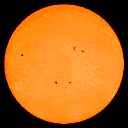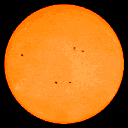Things I have recently spotted that may be of interest to others*:
The Arts: Relevant says that Denzel Washington, as a movie director, starts each work day with prayer. Good for him!
Christianity: Relevant reports on various city ordinances prohibiting feeding the homeless, or making it difficult to do so.
Christianity Today reports on a study that found that (surprise!) people stay away from church when it rains, and also commit more crimes when it rains, and they aren't in church.
Environment: Gizmodo reports that some bacteria seem to be breaking down plastics in the ocean, for food.
Finances: NPR reports that people living in mobile home parks are having their homes taken away, and that US government agencies are facilitating this process.
Politics: The Coal miners' union thinks Joe Manchin should have supported the Build Back Better bill, according to Gizmodo.
Pornography (There are no photos of pornography in the article(s)) linked here): Relevant writes about Billie Eilish, who was addicted to pornography as a child, and discusses women being addicted to pornography.
Science: Gizmodo reports that scientists have had some success in transplanting a pig's organ into a human.
NPR reports that a large eagle from Asia has been flying around North America for nearly a year.
Sports: FiveThirtyEight reports on new ways of tracking all sorts of data during basketball games.
The graphic used in these posts is from NASA, hence, it is free to use like this.
*I try not to include items that require a password or fee to view.
Thanks for reading.





